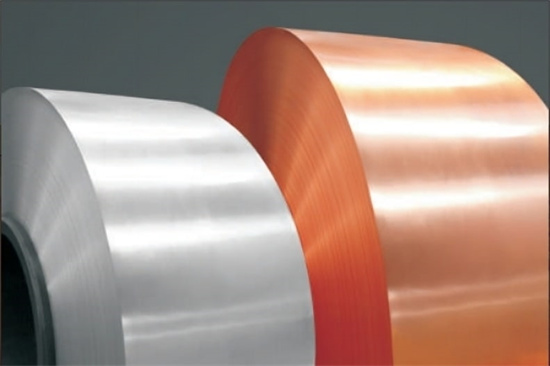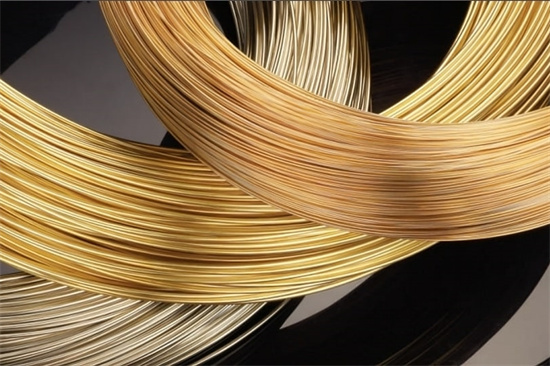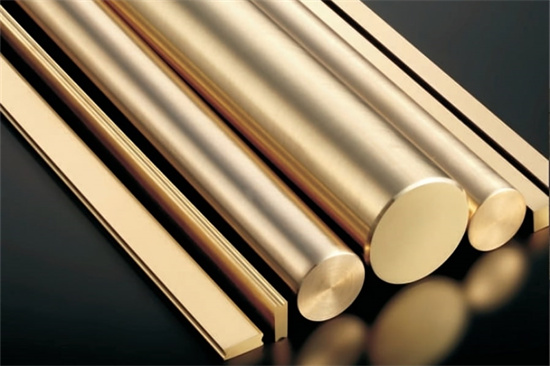


CuNiSi: Den viktigaste guiden till denna banbrytande koppar-nickellegering
Låg MOQ
Tillhandahålla låg minsta orderkvantitet för att möta olika behov.
OEM & ODM
Tillhandahålla kundanpassade produkter och designtjänster för att tillgodose unika kundbehov.
Tillräckligt lager
Säkerställa snabb orderhantering och tillhandahålla tillförlitlig och effektiv service.
Kundtillfredsställelse
Tillhandahålla högkvalitativa produkter med kundnöjdhet i fokus.
dela denna artikel
Innehållsförteckning
I en värld av högpresterande material, CuNiSi (Koppar-Nickel-Kisellegering) utmärker sig som en exceptionell blandning av styrka, Hållbarhet, och ledningsförmåga. Oavsett om du arbetar med elektriska kontakter, Fordonsdelareller till och med marina komponenter, CuNiSi erbjuder en kombination av egenskaper som gör det till det bästa valet för olika krävande branscher. Men vad är det egentligen som gör denna legering så speciell? Och hur vet du om det är rätt material för ditt projekt?
I den här detaljerade guiden kommer vi att utforska allt du behöver veta om CuNiSi, från dess sammansättning och mekaniska egenskaper till dess vanligaste tillämpningar och prissättning. Vi kommer också att dyka ner i viktiga jämförelser med andra legeringar och svara på några av de vanligaste frågorna om materialet. Så oavsett om du är en erfaren ingenjör eller bara någon som är nyfiken på avancerade material, den här guiden ger alla svar du behöver.
Översikt
CuNiSi är en kopparlegering som huvudsakligen består av nickel och kisel, och erbjuder en kombination av hög hållfasthet, god ledningsförmåga och utmärkt korrosionsbeständighet. Tillsatsen av nickel ökar legeringens mekaniska egenskaper, medan kisel hjälper till att förbättra dess hårdhet och termisk stabilitet. Detta gör CuNiSi till ett föredraget material i industrier som kräver både elektrisk ledningsförmåga och mekanisk hållbarhet.
Viktiga funktioner :
- Hög mekanisk hållfasthet, idealisk för komponenter under stress.
- Utmärkt elektrisk ledningsförmågavilket gör den lämplig för elektroniska komponenter.
- God korrosionsbeständighetsärskilt i marin och industriella miljöer.
- Termisk stabilitet, som tillåter användning i applikationer för höga temperaturer.
- Slitstyrka, vilket gör den idealisk för delar som utsätts för upprepade rörelser eller friktion.
Sammansättning och egenskaper
Utförandet av CuNiSi bestäms i hög grad av dess sammansättning. Kombinationen av koppar, nickel, och kisel skapar ett material med en väl avrundad uppsättning av mekanisk och elektriska egenskaper.
CuNiSi sammansättning
| Element | Procentuell andel (%) |
|---|---|
| Koppar (Cu) | 94 – 96 |
| Nickel (Ni) | 2.0 – 3.0 |
| Kisel (Si) | 0.5 – 0.8 |
| Övriga element | Spårmängder |
- Koppar (Cu): Basmaterialet, bidrar till hög elektrisk ledningsförmåga och Termisk prestanda.
- Nickel (Ni): Förbättrar styrka, slitstyrka, och korrosionsbeständighet.
- Kisel (Si): Förbättrar Hårdhet, styrka, och termisk stabilitet.
Mekaniska och fysikaliska egenskaper
| Fastighet | Värde |
|---|---|
| Draghållfasthet | 500 - 800 MPa |
| Utbyteshållfasthet | 250 - 400 MPa |
| Töjning | 10 – 20% |
| Hårdhet | 150 - 200 HV |
| Elektrisk konduktivitet | 40 – 60% IACS (International Annealed Copper Standard) |
| Täthet | 8,8 g/cm³ |
| Termisk konduktivitet | 180 – 220 W/mK |
| Motståndskraft mot korrosion | Utmärkt i marina miljöer |
Hur kompositionen påverkar prestanda:
- Hög hållfasthet: Nickel och kisel bidra till legeringens styrka och Hårdhet, vilket gör den klar att stå emot mekanisk påfrestning.
- Bra ledningsförmåga: Även om det inte är lika ledande som ren koppar, CuNiSi behåller en högre elektrisk ledningsförmåga än många höghållfasta legeringar.
- Motståndskraft mot korrosion: CuNiSi presterar exceptionellt bra i korrosiva miljöersärskilt i marin inställningar där exponering för saltvatten kan vara ett bekymmer.
Tillämpningar
Tack vare sin unika kombination av mekanisk och elektriska egenskaper, CuNiSi används i stor utsträckning inom flera branscher där styrka, Hållbarhet, och ledningsförmåga är kritiska.
Vanliga tillämpningar
| Industri | Tillämpningar |
|---|---|
| Elektronik | Kontakter, reläer, brytare |
| Fordon | Elektriska kontakter, sensorer, plintar |
| Marin | Korrosionsbeständiga komponenter, ventiler |
| Flyg- och rymdindustrin | Höghållfasta fästelement, kopplingar |
| Telekommunikation | Signalkontakter, RF-komponenter |
Varför den är idealisk för dessa applikationer:
- Elektronik: Den hög ledningsförmåga av CuNiSi gör den perfekt att använda i kontakter och Växlar. Dessa komponenter måste bibehålla utmärkta prestanda över tid, även efter exponering för repetitiva rörelser eller värme.
- Fordon: CuNiSi används ofta i elektriska kontakter och sensorer. Legeringens styrka och korrosionsbeständighet säkerställa tillförlitlighet i tuffa miljöer, såsom under huven på en bil där vibrationer, värme, och kemikalier är vanliga.
- Marin: Med tanke på dess motståndskraft mot korrosionsärskilt i saltvattenmiljöer, CuNiSi är ett självklart val för marina komponenter som Ventiler och beslag.
Specifikationer, storlekar och standarder
När du väljer CuNiSi för en viss applikation är det viktigt att förstå tillgängliga storlekar, Specifikationer, och standarder för att säkerställa kompatibilitet med ditt projekt.
Specifikationer och storlekar
| Specifikation | Detaljer |
|---|---|
| Form | Tråd, band, stång, plåt och folie |
| Tillgänglig tjocklek | 0,05 mm till 5 mm |
| Breddintervall | 1 mm till 200 mm |
| Längd | Anpassningsbar utifrån krav |
| Temperament | Glödgad, halvhård, fullhård |
| Standarder | ASTM B422, EN 12163, JIS H3270 |
Betyg
| Betyg | Egenskaper |
|---|---|
| CuNiSi standard | Balanserade egenskaper, lämpliga för allmänt bruk |
| CuNiSi hög styrka | Högre mekanisk hållfasthet för krävande applikationer |
| CuNiSi hög ledningsförmåga | Optimerad för elektriska applikationer med bättre ledningsförmåga |
Leverantörer och prissättning
Kostnaden för CuNiSi kan variera beroende på faktorer som Form, betyg, och mängd. Att välja rätt leverantör är avgörande för att säkerställa att du får högkvalitativt material som följer branschstandarder.
Leverantörer och prisuppgifter
| Leverantör | Plats | Prisintervall (per kg) | Leveranstid |
|---|---|---|---|
| Global Metals Co. | USA | $30 – $45 | 1-2 veckor |
| Euro kopparlegeringar | Europa | $28 – $42 | 2-3 veckor |
| AsiaMet koppar | Kina | $25 – $40 | 3-4 veckor |
| CopperTech International | Indien | $27 – $43 | 2-4 veckor |
| Superior Alloys Ltd. | STORBRITANNIEN | $32 – $48 | 1-2 veckor |
Faktorer som påverkar prissättningen:
- Kvantitet: Större beställningar kommer vanligtvis att resultera i en lägre pris per kilogram.
- Betyg: Hög hållfasthet eller kvaliteter med hög ledningsförmåga kostar i allmänhet mer än standarden CuNiSi.
- Plats: Fraktkostnader och skatter kan avsevärt påverka det slutliga priset, särskilt för internationella leveranser.
Fördelar och begränsningar
Som vilket material som helst, CuNiSi har sina styrkor och svagheter. För att hjälpa dig avgöra om det är rätt material för din ansökan, låt oss dela upp proffs och nackdelar.
Fördelar och begränsningar
| Fördelar | Begränsningar |
|---|---|
| Hög mekanisk hållfasthet och god ledningsförmåga | Dyrare än vanliga kopparlegeringar |
| Utmärkt korrosionsbeständighet | Något lägre konduktivitet jämfört med ren koppar |
| Lämplig för miljöer med hög stress | Begränsad formbarhet i hårdare humör |
| Finns i olika anpassningsbara former | Kräver exakt bearbetning för att maximera egenskaperna |
Är CuNiSi rätt material för dig?
Om du letar efter ett material som erbjuder en blandning av styrka, ledningsförmåga, och korrosionsbeständighet, då den är värt att överväga. Men om kostnad eller ren ledningsförmåga är dina primära bekymmer, kanske du vill utforska andra alternativ som ren koppar eller beryllium koppar.
Jämför CuNiSi med andra kopparlegeringar
För att bättre förstå om CuNiSi är den bästa legeringen för dina behov, låt oss jämföra den med andra populära kopparlegeringar som t.ex C11000 (ren koppar) och CuBe2 (berylliumkoppar).
CuNiSi vs. C11000 och CuBe2
| Fastighet | CuNiSi | C11000 (ren koppar) | CuBe2 (berylliumkoppar) |
|---|---|---|---|
| Draghållfasthet | 500 - 800 MPa | 200 - 300 MPa | 800 - 1000 MPa |
| Utbyteshållfasthet | 250 - 400 MPa | 70 - 100 MPa | 500 - 700 MPa |
| Elektrisk konduktivitet | 40 - 60% IACS | 100% IACS | 20 - 30% IACS |
| Motståndskraft mot korrosion | Utmärkt | Måttlig | Bra |
| Kostnad | Måttlig | Låg | Hög |
| Tillämpningar | Anslutningar, reläer, kontakter | Elektriska ledningar, allmän användning | Högbelastade komponenter, fjädrar |
Viktiga slutsatser:
- Den erbjuder betydligt bättre styrka än ren koppar (C11000) samtidigt som den håller sig ganska hög elektrisk ledningsförmåga.
- Jämfört med beryllium koppar (CuBe2), CuNiSi har lägre draghållfasthet men högre ledningsförmågavilket gör den mer lämplig för elektriska komponenter.
- Kostnadsmässigt, det är billigare än beryllium koppar, men dyrare än ren koppar.
Vanliga frågor och svar (FAQ)
För att hjälpa dig att få en tydligare förståelse för CuNiSi, vi har sammanställt en lista över några av de vanligaste frågorna.
| Fråga | Svar |
|---|---|
| Vad används CuNiSi till? | Den används i applikationer som kräver båda mekanisk styrka och elektrisk ledningsförmåga, såsom kontakter och kontakter. |
| Är CuNiSi lämplig för marina miljöer? | Ja, den erbjuder utmärkt korrosionsbeständighetvilket gör den idealisk för användning i marina tillämpningar. |
| Hur mycket kostar CuNiSi? | Priserna varierar vanligtvis från $25 till $48 per kgberoende på leverantör och kvalitet. |
| Kan CuNiSi användas i högtemperaturmiljöer? | Den kan hantera måttliga till höga temperaturer, men för extrema förhållanden kan andra legeringar vara mer lämpliga. |
| Hur jämför CuNiSi med ren koppar? | Den erbjuder mycket högre styrka än ren koppar samtidigt som den behåller bra elektrisk ledningsförmåga. |
| Vilka former finns CuNiSi tillgängligt i? | Den finns som tråd, band, stång, ark, och folie, vilket gör den mångsidig för olika tillverkningsbehov. |
Slutsats
Det är en högpresterande kopparlegering som kombinerar styrka, korrosionsbeständighet, och god ledningsförmåga. Dess unika kombination av egenskaper gör den idealisk för krävande applikationer inom industrier som t.ex elektronik, fordonsindustrin, och marin. Även om det kanske inte erbjuder samma nivå av konduktivitet som ren koppar, dess mekanisk styrka och Hållbarhet gör det till ett fantastiskt val för komponenter som behöver tåla stress och korrosiva miljöer.
Så, är det rätt för ditt projekt? Om din ansökan kräver en balans mellan styrka och elektrisk ledningsförmåga, då är svaret troligt ja.
Få det senaste priset
Om Met3DP
Produktkategori
HOT SALE
KONTAKTA OSS
Har du några frågor? Skicka oss meddelande nu! Vi kommer att betjäna din begäran med ett helt team efter att ha fått ditt meddelande.

Metallpulver för 3D-printing och additiv tillverkning
FÖRETAG
PRODUKT
cONTACT INFO
- Qingdao City, Shandong, Kina
- [email protected]
- [email protected]
- +86 19116340731








